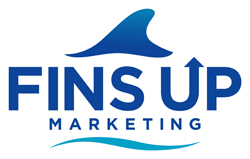Website Designers for Small Business: How to Choose the Right Partner to Grow Your Business
A well-designed website is more than just a digital presence for small businesses—it’s your online storefront, your first impression, and a crucial part of your brand’s credibility. With a strong online presence, small businesses can attract customers, improve their brand’s visibility, and grow steadily. The key lies in finding the right website designer who understands your unique needs and goals.
In this guide, we’ll explore the importance of having a professional website, the essential features every small business website should have, how to choose the right website designer, and the common pitfalls to avoid. You’ll also find tips on boosting your site’s SEO and real-life success stories of businesses that benefited from professional website design.
Why Small Businesses Need a Professional Website
In today’s competitive landscape, a professional website is no longer optional. Your website serves as the online hub for your brand, where potential customers learn about your services, interact with your content, and even make purchases. If your website is poorly designed or outdated, you could be missing out on valuable business opportunities.
Here are the key benefits of a professionally designed website:
- Credibility: A professional website instantly makes your business appear more credible and trustworthy. When customers see a well-structured, easy-to-navigate site, they are more likely to engage with your brand.
- First Impressions Matter: Visitors often judge your business based on their first experience with your website. An outdated, slow, or cluttered website can deter them from engaging further. On the flip side, a sleek, modern design can capture their attention and increase the likelihood of conversion.
- 24/7 Access: Your website works for you around the clock, providing information and driving leads, even outside of business hours. This means that no matter when potential customers are looking for your services, your website is there to serve them.
- Improved Customer Experience: A user-friendly, responsive website helps improve the customer experience. When customers can easily find what they’re looking for—whether it’s your contact information, products, or services—they’re more likely to have a positive impression of your business.
- Increased Revenue: Ultimately, a well-designed website can lead to increased revenue. By providing clear calls to action, seamless navigation, and an easy checkout process, you can convert visitors into paying customers more effectively.
Key Features of a Successful Small Business Website
A successful small business website isn’t just about looking good—it must also function seamlessly and provide value to your customers. Here are the essential elements of a great small business website:
- Responsive Design: Your website must look great and function smoothly across all devices—especially mobile. With more than half of all website traffic coming from mobile devices, having a mobile-friendly design is crucial for reaching today’s audience.
- Clear Call-to-Action (CTA): Every small business website should guide users toward taking action, whether it’s making a purchase, contacting you, signing up for a newsletter, or downloading an offer. Your CTA should be prominent, easy to understand, and encourage users to take the next step.
- Fast Load Times: Slow websites lose visitors—about 53% of mobile users will leave a site that takes longer than 3 seconds to load. Page speed optimization is critical for both user experience and SEO. A fast-loading website keeps users engaged and reduces bounce rates.
- SEO-Friendly: A well-optimized website helps customers find you on search engines, driving organic traffic and leads. SEO best practices include using relevant keywords, optimizing meta tags, ensuring your site loads quickly, and making it mobile-friendly.
- Easy Navigation: A simple and intuitive layout helps users find what they need quickly and improves their experience on your site. If visitors can’t easily navigate your site, they’ll leave and potentially turn to competitors.
- Secure (HTTPS): Security is non-negotiable in today’s online environment. Ensure your site is secured with HTTPS, which protects user data and boosts your site’s trustworthiness. An unsecured site can harm both your brand’s reputation and your SEO rankings.
- Social Media Integration: Incorporating social media buttons allows users to easily share your content and connect with you on different platforms. This is especially useful for businesses looking to build brand awareness and engage with customers on social networks.
- Contact Information & Forms: Make it easy for visitors to contact you. A clear contact page with phone numbers, emails, and physical addresses (if applicable) is essential. Additionally, contact forms should be user-friendly and placed strategically throughout the site.
How to Choose the Right Website Designer for Your Small Business
Choosing the right website designer can make or break your online presence. While there are many options available—from DIY builders to professional agencies—it’s essential to choose one that understands your specific business needs. Here’s how to make the right decision:
- Experience with Small Business Websites: Not all designers are created equal. You want a designer who has experience working with small businesses and understands the unique challenges they face. Small businesses often have limited budgets and need a site that balances cost-effectiveness with high-quality design.
- Portfolio: Take a look at the designer’s previous work. Do they have experience designing websites for businesses similar to yours? Review the look, functionality, and performance of their previous projects. Their portfolio should demonstrate versatility and an ability to tailor solutions to different industries.
- Client Testimonials: Feedback from previous clients can offer valuable insight into what it’s like to work with a particular designer. Here are a few testimonials from clients who worked with Fins Up Marketing:
- “Fins Up Marketing has been amazing to work with! From beginning to completion, they were prompt, knowledgeable, and kind. Their work is creative and professional—I couldn’t be more satisfied.” – Debra Lloyd
- “As a business owner in Central Florida, it’s crucial to have a strong online presence, and Fins Up Marketing has helped me achieve just that. From website development to digital marketing campaigns, their team has consistently delivered outstanding results.” – Duane Kimbriel
- “Best decision ever! Christina and her team at Fins Up Marketing exceeded my expectations and then some. They rocked our website just like we rock our music!” – John Nickoloff
- Communication & Support: Website projects require close collaboration. Choose a designer who is responsive and willing to work with you to create the best possible outcome. Ongoing support after the website is launched is also critical to ensure everything runs smoothly.
- Understanding of Your Brand: A great website designer will take the time to understand your business, your audience, and your brand’s unique voice. Your website should reflect your business’s personality and communicate your values to your audience.
Cost of Website Design for Small Businesses
One of the most important considerations for small businesses is the cost of website design. While the cost varies based on complexity, features, and the designer’s experience, here’s a breakdown of what to expect:
- Basic Website: $2,500 – $3,500. This includes a simple, professional design with essential features like contact forms, a few content pages, and basic SEO.
- Mid-Level Website: $5,000 – $10,000. A mid-level website might include custom designs, eCommerce capabilities, or more advanced functionality like booking systems and galleries.
- Advanced Features or Custom Development: $10,000+. Websites requiring complex features, such as member portals, extensive eCommerce, or API integrations, fall into this category. The price increases with customization and functionality.
- Ongoing Maintenance: Don’t forget to budget for website hosting, maintenance, and updates. It’s crucial to keep your website secure and functioning well over time. Typical maintenance costs range from $250 to $300 per month, depending on the level of service.
Common Website Design Mistakes to Avoid
Many small businesses fall into common pitfalls when designing their websites, which can lead to missed opportunities and poor user experiences. Here are some of the most frequent mistakes and how to avoid them:
- Cluttered Design: Too much information or visual clutter can overwhelm visitors. Keep your design clean, simple, and focused. Every element on your website should serve a purpose, and there should be plenty of white space to give the eyes a break.
- Lack of Mobile Optimization: Given the rise of mobile usage, ensuring your website is mobile-friendly is non-negotiable. Sites that aren’t optimized for mobile devices lose a significant portion of traffic and often experience lower search engine rankings.
- Unclear Calls to Action: Without clear guidance on what visitors should do next, you’re unlikely to convert them into leads or customers. Make sure your CTAs are visible, easy to understand, and strategically placed throughout the site.
- Ignoring SEO: A beautifully designed website is useless if people can’t find it. Don’t neglect on-page SEO, keyword optimization, and technical SEO. Without proper SEO, your website might never rank in search engine results, meaning fewer leads and sales.
- Slow Load Times: A slow website can cost you valuable customers. If your pages take too long to load, visitors will leave and likely turn to competitors. Prioritize optimizing images, using caching, and improving server response times.
DIY vs. Hiring a Professional Website Designer
When launching a new website, many small business owners debate whether to use DIY website builders or hire a professional. Each approach has its pros and cons.
DIY Website Builders:
- Pros: Lower cost, fast setup, and beginner-friendly platforms like Wix, Squarespace, and Weebly make it easy to get a site up and running.
- Cons: Limited customization, scalability, and SEO optimization. DIY websites often look generic and lack the advanced functionality that growing businesses need.
Hiring a Professional Designer:
- Pros: Custom designs tailored to your brand, built-in SEO optimization, scalability, and a polished, professional look. Designers can also offer ongoing support and ensure that your website grows with your business.
- Cons: Higher upfront cost. However, the return on investment is typically higher with a professionally designed site.
SEO Considerations for Small Business Websites
Search Engine Optimization (SEO) is essential for driving organic traffic to your website. Here’s how you can ensure your website is SEO-friendly:
- On-Page SEO: This includes optimizing your content, meta tags, and images for relevant keywords. Make sure each page is targeted for specific search queries that potential customers are likely to use.
- Technical SEO: Ensure your site has clean code, fast load times, and mobile-friendly design. These factors play a critical role in how search engines index and rank your site.
- Local SEO: For small businesses, optimizing for local search terms (e.g., “plumber in Raleigh”) can make a huge difference in attracting nearby customers. Claim your Google My Business listing, encourage customer reviews, and optimize for location-based keywords.
Success Stories
At Fins Up Marketing, we’ve helped countless small businesses build websites that deliver results. Our clients’ success is our top priority, and we’re proud of the partnerships we’ve built. Here’s what a few of our clients have to say:
- “Fins Up Marketing has been amazing to work with! From beginning to completion, they were prompt, knowledgeable, and kind. Their work is creative and professional—I couldn’t be more satisfied.” – Debra Lloyd
- “As a business owner in Central Florida, it’s crucial to have a strong online presence, and Fins Up Marketing has helped me achieve just that.” – Duane Kimbriel
- “Best decision ever! Christina and her team at Fins Up Marketing exceeded my expectations and then some.” – John Nickoloff
Ready to take your small business to the next level? Let’s create a website that works as hard as you do. Schedule your free consultation today or give us a call at (386) 631-3197, and let’s get started on building a website that will help you grow your business and stand out from the competition.




